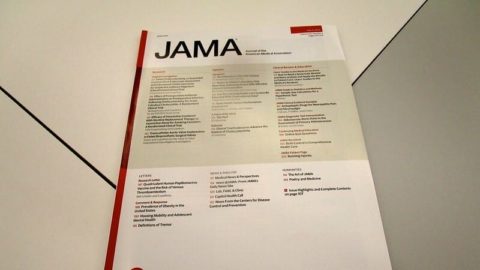The thing about J.P. Morgan is that you can draw overbroad conclusions after just 24 hours. The deals have been announced. Bellwether companies have provided a baseline. Attendees are not yet sleep-deprived. Everything after Monday is just variations on the theme.
In short: expect less tomorrow lol
Given my intro, let me over-extrapolate on the pricing and policy trends from Day One of #JPM24:
People aren’t talking policy. I counted two mentions of the IRA — BMS and J&J — based on the 10 or so sessions I saw or reviewed the transcripts of. Neither went into detail. I didn’t hear anything on IP. Nothing on rebates, either from a policy POV or a commercial POV. Accumulators? 340B? UM? GTFO.
I’ve having some good back and forth with smart people I know on that phenomenon. Is this a missed opportunity or a rational omission given everyone’s incentive to keep their corporate stories clean? (Policy issues in health care are never, ever clean.)
There are interesting commercial realities that will intersect with the policy environment. Let me give you an example: BMS talked a little bit about Sotyktu, a really good, small-molecule psoriasis drug. The market access strategy for Sotyktu has basically been to give away the medicine while it gets formulary access. And that’s a process that’s taking longer than originally expected.
That’s not to say that BMS is not executing well. Instead, it’s a reminder that PBMs are working really hard to delay access to launch drugs (and that they’re really good at that). Combine that trend with IRA price controls kicking in at year nine, and suddenly the meaningful life cycle of a medicine shrinks even further, to seven or eight years. The economics here are dynamic … and changing for the worse.
Gene therapy is still tough. Biomarin, which has a hemophilia gene therapy, said it will, frankly, talk less that product about going forward. The launch is “slower than anybody would have expected or would want, but we are making progress,” according to CEO Alexander Hardy. Hardy didn’t get into what’s going on — there are a lot of elements, from treatment patterns to reimbursement, that impact this — but it’s clear that the commercial nut remains uncracked in gene therapy. (Yes, I know that Novartis is going just fine, but that’s looking like an exception to the rule.)
It’s likely that this is a natural growing pain. Gene therapy is a radical care-delivery concept, science aside. Lots of smart people see a path forward. Patients will clearly benefit. The unanswered question, though, is timing. Not all revolutions happen overnight.
Ties are out. I saw five sessions in person, and not a single CEO wore a tie. But I’m a vendor, so I’m still rocking the double-Windsor.
Good stuff from Adam Fein and Drug Channels on formulary exclusions. The top-line numbers look a lot like last year, but Adam gets into some of the fascinating nuances in the insulin and Humira biosimilars markets. A clip-and-save post.
This is a great Health Affairs paper on the impact of cost-sharing on HIV pre-exposure prophylaxis. About 5.5% of patients abandon their scrip if they don’t have a copay. That number doubles if you go to $10. And it gets to 42.6% if you go above $500. The authors also close the circle by estimating how much more HIV there is with more cost-sharing. Can explain give a good reason why there’s ANY cost-sharing in this space?
Speaking of Health Affairs, this is a solid, descriptive paper that classifies orphan drugs, splitting the category into three segments: 65% of orphan drugs are approved in one rare disease. Another 15% are approved in two rare diseases. And the remainder are approved in both a rare disease and a common disease. Probably has implications for debates about the future of orphan drug regulation.
There is some second-day reaction from companies on the Bernie Sanders inhaler thing. The Washington Post has reactions from Boehringer Ingelheim and GSK. (Endpoints also covered, noting that AstraZeneca and Teva didn’t comment). I’m going to repeat myself here, because I’m not seeing this in the coverage: GSK did, essentially, what Sanders is asking for: they cut the list price of Flovent (by introducing an authorized generic). And that made things worse. Again, I’m not saying that there aren’t IP issues to discuss in this sector. But waving a magic wand on list prices is going not to magically help patients.
WaPo also looked at a long-stalled CMS proposal to reform prior authorizations in Medicare. There really can’t be enough light shone on that subject.
PhRMA’s going to sue over the Florida implementation plan, natch.
Two former federal judges have an anti-march-in piece in Bloomberg. March-in is clearly the cause of the moment. (If anyone wants suggestions on the next cause of the moment, I have a list …)
If this email was forwarded to you, and you’d like to become a reader, click here to see back issues of Cost Curve and subscribe to the newsletter.





